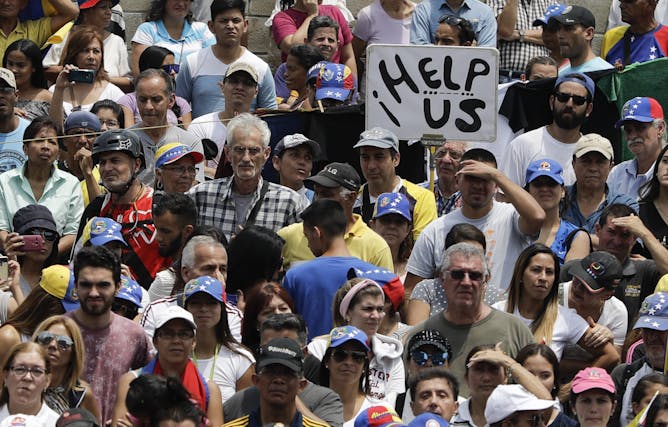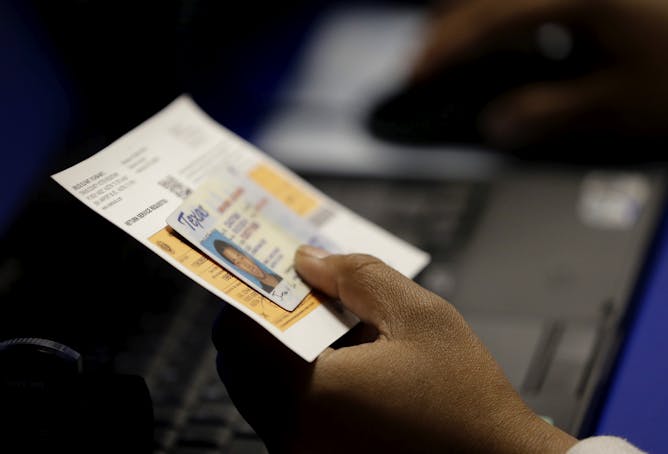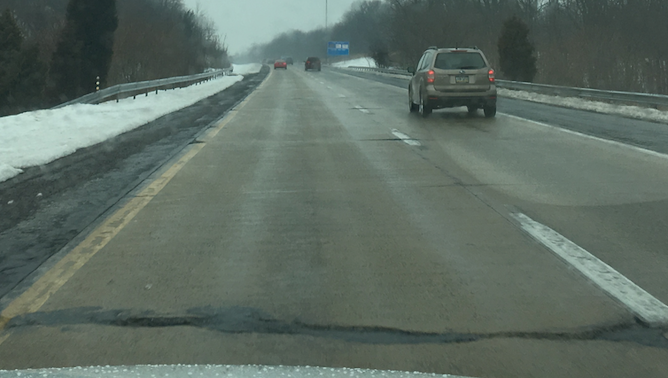|
|
|
Editor's note
|
|
Two factions vying for power, the arrival of Russian troops, clashing protesters and prolonged blackouts. Reports from Venezuela sound like a country on the verge of war. The reality may be grimmer: political stalemate. David Smilde, who has studied Venezuela for three decades, says President Nicolás Maduro retains a firm grip on power. And if the United States tries to push him out with oil sanctions or a military invasion, Smilde
thinks the Venezuelan people will suffer the most.
Since Republican state lawmakers started passing strict voter ID laws, Democratic politicians and activists have pointed to these laws as tools of voter suppression. Political scientists Ben Pryor, James Davis and Rebekah Herrick wondered if the rhetoric matched the facts. So they decided to pore over Election Day voting data to see if strict voter ID laws had a chilling effect on minority turnout. Their results may surprise you.
After the big spring melt we notice all the damage snow, ice and salt has done to our infrastructure, including the cracks and potholes in roads and pavements. Civil materials engineer Yaghoob Farnam explains how a salt-loving microbe may be able to help patch cracks in concrete before they cause problems.
|
Catesby Holmes
Global Affairs Editor
|

|
|
Top stories
|

Venezuelans have faced food and medicine shortages since late 2015. Now power outages have cut off water supplies, too.
AP Photo/Natacha Pisarenko
David Smilde, Tulane University
As rival factions vie for control over Venezuela, many of the country’s 31 million people are suffering prolonged power outages, food and water shortages, and limited access to medicine.
|

An election official checks a voter’s photo identification at an early voting polling site in Austin, Texas.
AP Photo/Eric Gay
Ben L. Pryor, Oklahoma State University; James Davis, Oklahoma State University; Rebekah Herrick, Oklahoma State University
States may have passed these laws with the aim of reducing turnout. But new evidence suggests that they have a minimal or nonexistent effect.
|

Fixing cracks and potholes in concrete roads like this one may be easier with help from bacteria.
Yaghoob Farnam
Yaghoob Farnam, Drexel University
Patching concrete sidewalks, roads and bridges after every season of snow and ice is expensive. A team of engineers is now testing a new approach harnessing bacteria to patch the potholes and cracks.
|
|
|
|
|
|
|
|
|
|
|
Most read on site
|
-
Igor Vojnovic, Michigan State University; Minting Ye, Michigan State University
A new study examined how growing numbers of single women in one of the world's most expensive cities are contributing to its gentrification.
-
Kenneth McLeod, Binghamton University, State University of New York
Weight loss often leads to declines in our resting metabolic rate – how many calories we burn at rest – which makes it hard to keep the weight off. So why does weight loss make resting metabolism go down?
-
Sandra Loesgen, Oregon State University
As antibiotic resistance increases globally, the heat is on to find new alternatives to treat infections. Chemists can get a head start by looking at compounds produced in nature by fishes' microbes.
|
|
Today’s chart
|
-

 |
Beverly Moran
Vanderbilt University
|
| | | |
| |
|
|
|
|
|
|
|